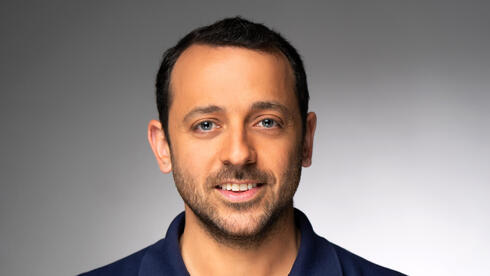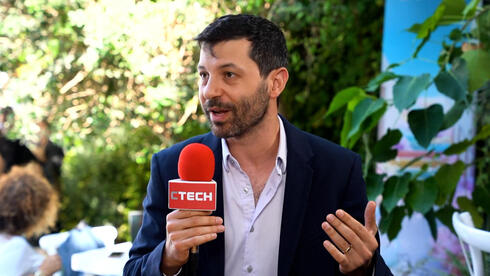
AI Conference
“What’s at stake is not just building a company but building Israel into a world power”
Decart’s Dean Leitersdorf, Kela’s Hamutal Meridor, Cyera’s Shiran Bareli and Hailo’s Orr Danon explained at Calcalist’s AI Conference that drones, data, and defense demand urgent national investment.
The promises and perils of artificial intelligence dominated the stage at Calcalist’s AI Conference on Sunday, where a panel of Israeli executives and researchers wrestled with how the technology is transforming battlefields, businesses, and everyday life.
The discussion, moderated by Calcalist reporter Sophie Shulman, opened with Hamutal Meridor, CEO of defense intelligence company Kela, who framed AI as a force pushing the battlefield into civilians’ backyards.
1 View gallery


AI Conference panel (from left): Orr Danon, Shira Bareli, Dr. Dean Leitersdorf, Hamutal Meridor and Sophie Shulman.
(Photo: Dana Kopel)
“AI started in the defense industries,” Meridor said, tracing its lineage back to DARPA research in the 1960s and 1970s. “But today the innovation is reversed, it comes from the civilian sector.” What once required government research budgets now fits into off-the-shelf hardware: “The compute has become much cheaper and much smaller,” she explained. “That means a drone can be smarter, a soldier’s watch can be smarter, and a tank can be smarter, and they can all talk to each other.”
But this same dynamic, she warned, erodes the boundary between front lines and the home front. “The home front becomes the front,” Meridor said, citing reports that militants had used commercial drones with improvised AI chips in assassination attempts. “These drones are cheaper, more reliable, and programmable. The whole world is going to experience this soon.”
Shiran Bareli, head of research at cybersecurity company Cyera, argued that the proliferation of AI heightens the risks inside organizations. “There is no AI without data,” she said. “The risk is about who can access this data, and that includes AI itself.” She pointed to the growing threat of insider leaks, where employees, even unwittingly, use AI tools to process sensitive company information. “Once data leaves the company, it’s already out. It depends on the goodwill of the place it went.”
Bareli suggested that businesses must carefully map which AI tools employees are using and weigh the trade-offs between productivity and exposure. “The idea is not to limit employees,” she said, “but to understand what the playing field is, and which tools are legitimate or less legitimate.”
From the defense and cyber fronts, the conversation shifted to the physical world. Orr Danon, CEO of chipmaker Hailo, underscored that the next frontier of AI is not only in cloud-based models but also in embodied systems. “What’s really big in AI today is undoubtedly the cloud,” he said, “but the issue of AI entering the physical world is a revolution no less significant.” He pointed to recent robotics competitions in China as signs of early progress. “Some of it may look funny,” Danon said, “but some of it feels like the moments before ChatGPT. We’re close to robots that can change manufacturing, medicine, and even defense.”
If Meridor and Bareli emphasized danger, and Danon projected inevitability, Dean Leitersdorf, founder and CEO of Decart, sought to capture the opportunity. Leitersdorf outlined three ambitions for his company and for Israel: building core AI models, reshaping how billions of people experience the internet, and ensuring Israel plays on the global stage.
“ChatGPT cannot be the last product that touches a billion users,” he argued. “The information layer of the internet is finished. What hasn’t changed is creativity, what we do when we’re not doing homework. That’s the fun part. That’s where AI has barely begun.”
To drive home the point, Leitersdorf unveiled a live demo of Decart’s video-generation model, projecting images of the conference audience transformed in real time into zombies, anime characters, or comic book heroes. “There was nothing like this in the world before,” he said. “Your kids will probably be addicted to it.”
The panel ended on a sober note, with all four executives agreeing that Israel cannot afford to sit out the global race to build foundational AI models. “We must,” Meridor said. “It’s infrastructure. It’s national.” Bareli called for regulatory frameworks that prevent misuse, while Danon and Leitersdorf pressed for government support to match what competitors are receiving abroad.
“What’s at stake,” Leitersdorf concluded, “is not just building a company but building a power.”














